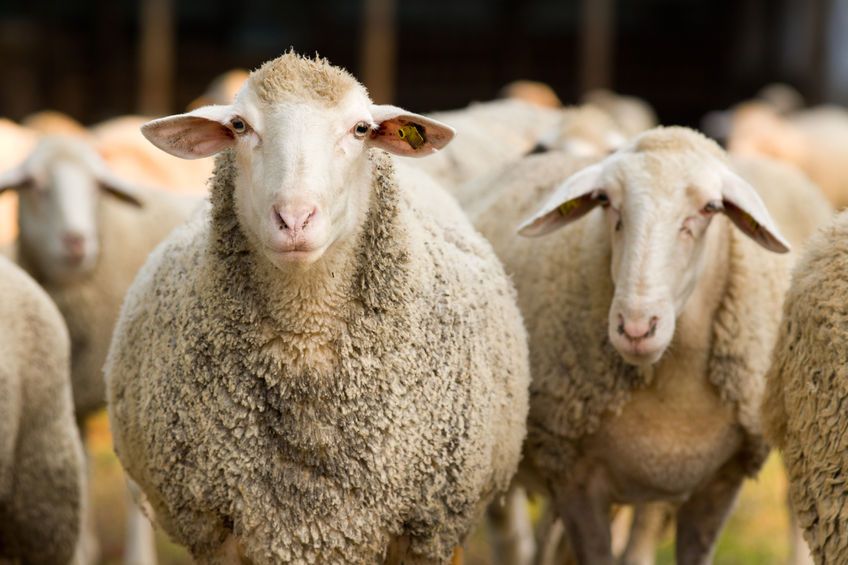
A proposed five-fold increase in licence fees for farmers to dispose of waste water after dipping sheep is a "potential threat" to the UK's high animal welfare standards.
According to he National Sheep Association (NSA), treating with organophosphate dips is an "essential practice" to kill certain sheep parasites, particularly scab mites.
As appropriate to their potential impact on human health and the environment, the NSA said farmers must hold a Certificate of Competence to use the dips and an Environment Agency Disposal Licence to handle the waste water afterwards.
The sheep organisation is opposing a "disproportionately" large increase in the cost of applications and renewals processed by the Environment Agency after April 2018, taking a new licence to more than £2,000.
Sheep scab is a debilitating and painful disease in sheep that usually requires swift and effective treatment.
The life cycle of the scab mite makes diagnosis and control difficult and disease incidence is increasing across the UK.
'Best practice'
Phil Stocker, NSA Chief Executive, said: “NSA and industry partners are highlighting best practice messages to farmers – but the success of this depends on practical and affordable treatment options.
“Making sheep dipping prohibitively expensive would massively affect the sheep sector, particularly now when we have serious problems and risks being experienced with any alternative treatments for sheep scab”.
The only alternative treatment – macrocyclic lactone injections that kill the external scab mite as well as internal sheep worms – is difficult to administer at a time that is appropriate in the life cycle of both types of parasite, according to the NSA.
It said treating at the wrong time causes resistance to the injection, rendering it useless over time.
Resistance of internal parasites has risen in line with increased use of injectables to treat sheep scab, and multiple cases of resistance in scab mites has recently been recorded for the first time.
'Welfare problems'
Mr Stocker continued: “Resistance to the one treatment option and economic barriers to the other would allow sheep scab to increase, causing welfare problems in sheep and affecting the ability of farmers to run viable businesses.
“UK sheep farmers pride themselves on high animal welfare standards, and such standards are being lauded by ministers involved in post-Brexit trade negotiations.
The NSA said it is a "strong advocate" of integrating farming and environmental policies, however, the organisation said unilateral pricing decisions cannot be made without considering the consequences on animal health and welfare.
“The proposed fees will ultimately result in welfare problems and a heightened risk of further disease spread – contradicting clear political objectives in these areas,” Mr Stocker added.
NSA shared its views with the Environment Agency during the official consultation and will continue to highlight the importance of rethinking the proposed new pricing structure.
